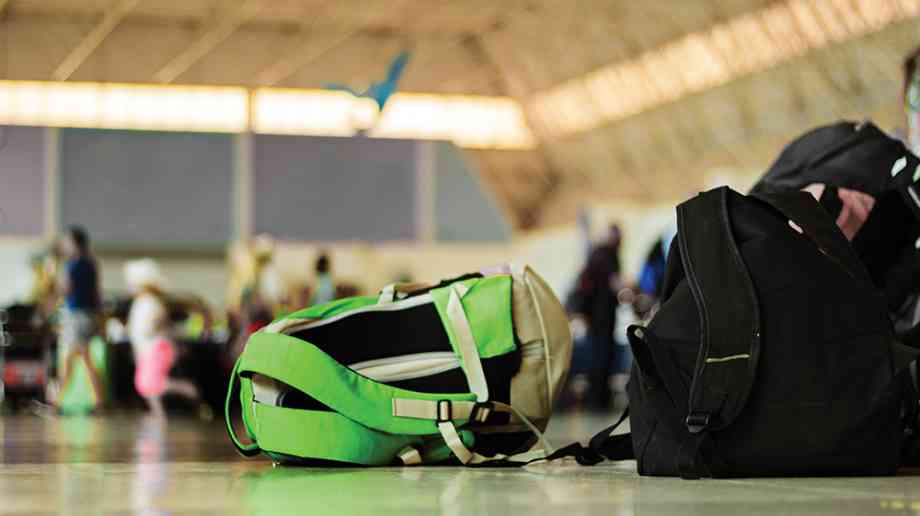
Confident trip planning
The recent Learning Away survey found that 67 per cent of teachers felt that they lacked support when it came to planning a school trip. With this in mind, the School Travel Forum created an online ‘Teacher Toolkit’ designed to address their common concerns and highlight the benefits of trips.
The School Travel Forum’s Teacher Toolkit includes research into the academic value of educational travel, guidance for planning overseas travel and official policy documents related to overseas educational travel. From fears over liability issues to minimising the administrative burden on teachers, the resource advises on what support is available and illustrates the many benefits of providing learning outside of the classroom experiences.
The Learning Away survey revealed that teachers continue to lead the way when it comes to supporting the case for school trip provision; however 84 per cent wish they could take more school trips and 64 per cent have concerns over safety and risk when organising a school trip. By listening carefully to feedback from teachers on their main concerns, the STF has tailored the new toolkit to provide support, reassurance and solid advice on a wide range of topics. The hope is that this in turn will lead to schools providing more learning outside the classroom opportunities, as group leaders and parents can be more confident that school trips are safe; leading to better educational experiences, which are vital to the development and academic achievement of students.
Organised by professionals
Booking school trips through members of the School Travel Forum, whether domestic or overseas, will ensure trips are organised by professionals, and according to the highest standards governing transport, accommodation and excursions so that parents can be assured of their child’s safety. In light of this, it is worrying that 23 per cent of school trips are still organised without the help of a specialist tour operator, resulting in possible risks and an added burden on teachers. By organising school trips without the help of specialist tour operators, teachers face many time consuming organisational and regulatory challenges required to safely organise educational excursions. It is our mission, alongside our accredited members, to help teachers to plan safer, more enriching educational trips and to always choose a badged provider.
Trusting the Kitemark
The LOtC Quality Badge is a valuable kitemark for teachers to look out for. All ‘Assured Members’ of the STF are required to adhere to a rigorous code of practice and safety management standards and be audited each year by Argent Health & Safety, a health and safety consultancy specialising in travel, to ensure continuing compliance. Due to these high compliance standards, all trips organised through our members will instantly meet local authority guidelines and provide teachers with full time support at home or abroad to resolve any unexpected booking issues or emergencies.
When teachers see a STF Assured Member Logo, they can be confident that the school group travel operator has passed a detailed audit of their operating systems, particularly focusing on safety management and education facilitation. This audit is undertaken by an independent, external agency. Clearly written and fully detailed, our guidance documents provide vital advice to teachers, parents and group travel organisers. Covering advice from vetting staff from overseas and demystifying risk assessment to snowsports safety, the STF has made it easy for school trip guidance to be easily accessed.
Basic principles
The teacher toolkit seeks to illustrate, in non‑technical terms, common basic principles and how they can be effectively used to benefit group management plans and is suitable for all schools. Many of the requests for help we receive come from group travel leaders preparing to take visits that did not include outdoor and adventurous activities, but were typically curriculum-based tours, such as history and modern language residentials or concert tours. Therefore this new toolkit is designed to assist with the organisation of every type of tours.
Risk Assessments
Demystifying risk assessments is an important focus of our guidance notes. Teachers need to feel confident that they simply have to deal with what is reasonably foreseeable and respond within a reasonable range of measures. Professional judgement, particularly when backed by experience, is sufficient to deal with such situations within schools and it is no different when off-site.
It is important to follow any school or LEA guidelines and it is recommended that two or more leaders participate in the planning process. This sharing of the planning process shares knowledge and skills, allows others to be involved and take ownership of the solutions. Additionally, there is every reason to involve pupils, as a good code of conduct will inevitably feature in any group management plan.
If we take the example of a school trip to the Eiffel Tower, leaders will have to think about the risk management task as managing the group safely round the series of obstacles the Eiffel Tower presents. The significant hazards to an average school group would be: children getting lost, inappropriate behaviour, sickness, petty theft; however in this example, trips on stairs and fear of heights would also have to be considered in addition to the ‘generic risk assessments’. Additionally, it is important to recognise that generic risk assessments must be revisited for each trip, even if the group returns to the same place on a regular basis, because the make-up of the group (leaders and pupils) will be different every time.
Survey Findings
STF members carry over 16,255 school groups annually and our work to conduct surveys on teachers’ concerns and opinions over school trip planning is a major factor in steering the support our members offer to teachers from start to finish. Our surveys have shown that 79 per cent of teachers place great emphasis on having access to 24/7 support in the event of unpredictable events affecting the trip. Having complete confidence that everything is dealt with efficiently, from insurance to financial issues and communicating with foreign agencies is a major concern. Over 90 per cent of teachers also said that their chosen tour operator must have approved financial security schemes in place. With awareness growing of the fact that all STF members provide these assurances, teachers can now experience more peace of mind than ever before when booking a school trip.
Teaching beyond the classroom
The benefits of learning outside of the classroom are well documented and far‑reaching. Learning Away’s recent survey of UK schools found that as a result of going on a school trip, 87 per cent of students felt more confident trying new things, whilst 60 per cent of teachers noticed increased confidence, resilience and wellbeing in their students.
School trips also result in higher academic achievement, with 61 per cent of students achieving higher than their predicted grade following a school trip based on the subject area. Understanding between teachers, students and their peers also benefit, with 71 per cent of students reporting that they felt that their teachers better understood their learning habits, whilst 70 per cent felt that they were getting on better with their peers following the trip.
Pupils and teachers will remember their school trips for their lifetime and it is part of our role to ensure that this is for all the right reasons. LOtC opportunities can profoundly enrich the lives, outlook and prospects of each student and we are proud to be able to help make sure that trips are a positive experience and to help reduce the administrative burden on teachers organising school travel.
Further information
www.schooltravelforum.com
Latest News
21/11/2025 - 09:37
The framework provides a practical guide to integrating education and health for better outcomes for children and young people.
20/11/2025 - 10:42
Parents will be able to get Enhanced Disclosure and Barring Service (DBS) checks when hiring private tutors, carers and therapists, among others.
20/11/2025 - 10:37
The government is funding research into developing smarter data tools to help identify children with special educational needs sooner.
20/11/2025 - 09:48
The programme prioritises schools with the highest proportion of pupils on free school meals to ensure the benefits are felt where it is most needed.
19/11/2025 - 09:41
Skills England has announced that development of the second round of Local Skills Improvement Plans (LSIPs) is now underway and has published guidance to steer the process







